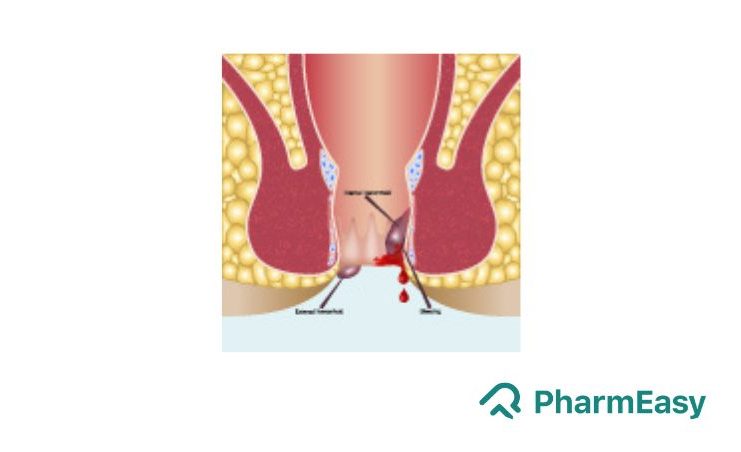How To Cure Piles Starting Stage?- Best tips by Dr. Mayuri
By Dr. Mayuri Pandey +2 more

Get,

to manage your symptom
Get your,


4 Cr+ families
benefitted

OTP sent to 9988776655



You’ve successfully subscribed to receive
doctor-approved tips on
Whatsapp

Get ready to feel your best.

Hi There,
Download the PharmEasy App now!!


Register to Avail the Offer
Send OTPBy continuing, you agree with our Privacy Policy and Terms and Conditions

Hi There,
Sign up on PharmEasy now!!
Trusted by 4 crore+ families

OTP sent to 9988776655



You have unlocked 25% off on medicines




Code: NU25
By Dr. Mayuri Pandey +2 more
Table of Contents
Piles or haemorrhoids are a common condition but can be an embarrassing and unpleasant topic. They are characterized by swollen and enlarged veins present in the anal area causing a great deal of discomfort. In India, piles are known to affect nearly 40 million people but the true incidence is not known due to cultural and socio-economic reasons. Depending upon their location, piles can be internal (found inside the rectal region) or external (found on the skin near the anal region). Depending upon the appearance and whether the haemorrhoids prolapse (bulge out of the rectum) or not, internal haemorrhoids are further classified into four stages. The different stages of piles are described as below:
Following are the symptoms of piles starting stage:

If you have any of the above complaints, you should seek proper consultation from your doctor or proctologist for proper management of early-stage piles symptoms.
In the early stages of piles, it is believed that advancing age may cause the supporting tissues in the anal canal to become weak and chronic constipation may exert pressure on the tissues in the anal canal resulting in the piles.2
Read More: 8 Best Home Remedies For Piles
If still the symptoms do not resolve, surgical excision of the piles may be needed.
Piles or hemorrhoids are a common condition characterised by swollen and enlarged veins present in the anal canal. Depending on the location, piles are classified as internal or external haemorrhoids. Internal haemorrhoids depending on their severity are again classified into different stages like I, II, III, and IV. During the early stages of piles (grade I), the management starts with conservative measures that include avoiding constipation by dietary and behavioral recommendations, exercises, topical medications, and oral medications.
The starting stage of piles or Grade I is characterized by piles associated with bleeding that do not prolapse.1
Piles fourth stage is characterized by permanently prolapsed haemorrhoids which cannot be corrected.1
Piles initial stages symptoms may be associated with bleeding stools, itching, and pain, burning sensation in the anal region.1
Although many homeopathic medicines are available in the market for symptomatic relief from piles. It is best to buy a preparation after consulting with your doctor or proctologist.5
Yes, during the early stages of piles (grade I), appropriate conservative management which includes avoiding constipation by dietary and behavioral recommendations, exercises, topical medications, and oral medications may help. Hence, you should consult a doctor at the earliest stage.
Disclaimer: The information provided here is for educational/awareness purposes only and is not intended to be a substitute for medical treatment by a healthcare professional and should not be relied upon to diagnose or treat any medical condition. The reader should consult a registered medical practitioner to determine the appropriateness of the information before consuming any medication. PharmEasy does not provide any guarantee or warranty (express or implied) regarding the accuracy, adequacy, completeness, legality, reliability, or usefulness of the information; and disclaims any liability arising thereof.
Links and product recommendations in the information provided here are advertisements of third-party products available on the website. PharmEasy does not make any representation of the accuracy or suitability of such products/services. Advertisements do not influence the editorial decisions or content. The information in this blog is subject to change without notice. The authors and administrators reserve the right to modify, add, or remove content without notification. It is your responsibility to review this disclaimer regularly for any changes.

Leave your comment...
Comments